Elvtársak, egyetlenegy dolgunk maradt mára nekünk és fiainknak: úgy búcsúzni a világbajnokságtól, ahogy beköszöntünk oda: odaadással, figyelemmel és a minket figyelők tiszteletével övezve, feledve a második meccs teljes kudarcát. Mutassuk meg, hogy a brazilok ellen mutatott játék nem kicsúszott eredmény volt, hanem előre megtervezett, összehangolt és gyönyörű csapatmunka.
Egy pontszerzés szép eredmény lenne a nagy eséllyel szintén már kiesett afrikaiak ellen, ugyanis ne legyen kétségünk, még egyszer nem fog olyan gyalázatosan szerepelni a válogatott mint a portugálok ellen, márpedig fekete testvéreinknek ez is kellene ahhoz, hogy álmodozhassanak a továbbjutásról.
Ezzel tehát csapatunk elköszön Dél-Afrikától, de olvasó eszmetársak, a blog továbbra is működik a világbajnokság végéig, folytatni fogjuk a népi futball bemutatását, a Nagy Vezér, a Kedves Vezető méltatását és országunk csodálatos történelmének elétek tárását.
Szabadság!
Várható kezdőcsapatunk: Ri Mjong Guk - Ri Kvang Cson, Nam Szong Csol, Pak Csol Dzsin, Ri Dzsun Il, Dzsi Jun Nam, Mun In Guk, An Jung Hak, Pak Nam Csol, Hong Jong Dzso, Dzong Te Sze


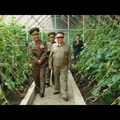
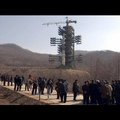
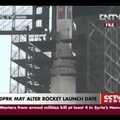
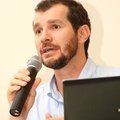
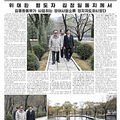
Utolsó kommentek